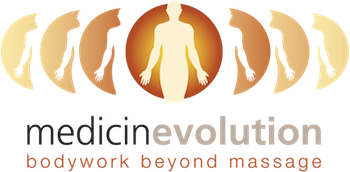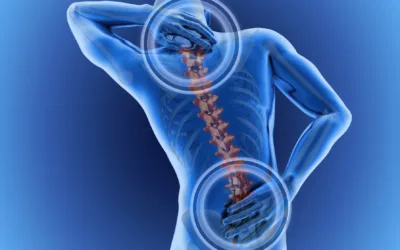Are you tired of persistent pain and seeking a new approach to enhance your pain management routine? Discover the transformative benefits of integrating Structural Integration into your existing regimen. This holistic method focuses on realigning the body’s structure to alleviate discomfort and promote overall well-being. By incorporating Structural Integration sessions, you can experience improved posture, increased flexibility, and reduced pain levels. Learn how this innovative technique can complement your current strategies and provide long-lasting relief. Elevate your pain management journey with the power of Structural Integration today.
Understanding Structural Integration Basics
History
Structural Integration, developed by Dr. Ida Rolf in the 20th century, focuses on manipulating the body’s myofascial system. Structural Integration aims to improve posture, alleviate pain, and enhance overall well-being through a series of sessions.
Principles
Structural Integration is based on the idea that physical and emotional traumas can manifest as restrictions in the fascia. By releasing tension in the fascia, Structural Integration seeks to restore balance and alignment in the body.
Targeting Fascia
Structural Integration practitioners use hands-on manipulation to release adhesions and realign fascial layers. This technique helps improve flexibility, reduce pain, and enhance movement efficiency over time.
Benefits
- Enhanced posture
- Improved mobility
- Alleviation of chronic pain
Role Of Rolfers
Rolfers, trained professionals in Structural Integration, work closely with clients to address their unique needs. They guide individuals through a series of sessions aimed at fostering physical and emotional transformation.
Preparing For Your First Session
Movement Patterns
Assess your current movement patterns to pinpoint areas that Structural Integration can address effectively. Look for any stiffness or imbalances.
Posture Evaluation
Undergo a postural assessment to determine how your body alignment may be contributing to your pain. This evaluation is crucial.
Rolfers will take measurements during the session to track progress throughout your treatment plan. These parameters help tailor each session.
Follow the Rolfer’s advice on exercises and stretches to complement the effects of Structural Integration. These activities enhance the benefits of sessions.
Recovery Period
After each session, prioritize rest and recovery. This downtime allows your body to integrate the changes made during Structural Integration.
Expectations From Initial Structural Integration Sessions
Functional Screening
During rolfing sessions, clients typically undergo a comprehensive functional screening. This screening helps assess specific areas of tension, imbalance, and restricted movement patterns. The aim is to identify the root causes of pain and discomfort accurately.
Rolfers use this screening to tailor the treatment plan to each individual’s unique needs. By pinpointing problem areas early on, they can create a targeted approach that addresses the underlying issues effectively.
Pain Relief Techniques
In rolfing sessions, clients can expect to experience significant pain relief through specialized techniques. These techniques are designed to target chronic conditions and provide long-lasting benefits. By addressing deep-seated issues, rolfing can offer relief where other methods may fall short.
The hands-on manipulation and pressure applied during rolfing sessions help release tension in the fascia, muscles, and connective tissues. This targeted approach not only alleviates immediate discomfort but also works towards resolving the root cause of the pain.
Empowerment And Recovery
One of the key outcomes of rolfing sessions is the sense of empowerment experienced by clients. Through the recovery process, individuals often regain confidence and strength both physically and mentally. This newfound sense of empowerment can be transformative, leading to improved overall well-being.
Pain Relief And Recovery Techniques
Physical Therapy
Physical therapy plays a crucial role in integrating Structural Integration into your pain management routine. It focuses on restoring muscle function through targeted exercises and stretches. By incorporating physical therapy, individuals can address specific areas of pain and improve mobility.
Deep Tissue Massage
Deep tissue massage is another effective technique for managing pain. This method targets deep layers of muscles and fascia to release tension and reduce soreness. Through deep tissue massage, individuals can experience relief from chronic pain and improve overall flexibility.
Embrace a holistic approach to recovery by combining movement training, therapy, and self-care practices. Manual therapy, such as Structural Integration, complements these techniques by addressing the body’s structural imbalances and promoting long-term pain relief.
Fascial Therapy
Fascial therapy focuses on the body’s connective tissues to alleviate pain and enhance mobility. By targeting the fascia, this technique helps release restrictions and improve overall movement patterns. Incorporating fascial therapy into your pain management routine can lead to significant improvements in symptoms related to trauma or chronic pain.
Practice breathing and relaxation techniques to promote rest and provide relief from muscle soreness. These methods help reduce stress levels, improve sleep quality, and support the body’s natural healing processes.
Mechanical Stimuli
Incorporating mechanical stimuli through SI therapy can further enhance the benefits of Structural Integration. Structural Integration (SI) therapy focuses on realigning the body through manual techniques, improving posture, and reducing pain symptoms. By combining Structural Integration with SI therapy, individuals can experience comprehensive relief from musculoskeletal issues.
Pros:
- Targeted approach to address specific areas of pain.
- Enhances flexibility and mobility.
- Supports long-term pain relief through structural alignment.
Cons:
- May require multiple sessions for optimal results.
- Some techniques may cause temporary discomfort during treatment.
Integrating Structural Integration Into Your Routine
Optimal Body Alignment
Regular Structural Integration sessions play a crucial role in maintaining optimal body alignment and preventing injuries. By addressing structural imbalances, Structural Integration helps align the body’s segments, promoting better posture and reducing strain on muscles.
Structural Integration focuses on releasing chronic tension and realigning the body’s structure, leading to improved balance and stability. This can help alleviate pain caused by poor posture or misalignment, contributing to overall well-being.
Enhanced Flexibility
Integrating Structural Integration into your pain management routine can significantly enhance flexibility and range of motion. Through targeted manipulation of the fascia and muscles, Structural Integration helps release tightness and restrictions, allowing for smoother movement patterns.
By incorporating Structural Integration into your wellness regimen, you can experience increased joint mobility and reduced stiffness. This can be particularly beneficial for individuals dealing with chronic pain or recovering from injuries.
Improved Athletic Performance
Consistent Structural Integration sessions have been shown to improve movement patterns and boost overall athletic performance. Athletes often turn to Structural Integration to address muscle imbalances and enhance their body’s efficiency during physical activities.
Structural Integration can help athletes recover faster from intense training sessions by promoting quicker muscle repair and reducing the risk of overuse injuries. This holistic approach to structural integration can optimize an athlete’s performance potential.
Enhancing Flexibility And Performance
Mobility Benefits
Incorporating Structural Integration into your pain management routine can significantly improve elasticity and mobility. By targeting fascial stiffness through deep manipulation, Structural Integration enhances your body’s flexibility.
Structural Integration sessions often involve specific exercises that help release tension in the soft tissues, promoting a more balanced posture and increased range of motion. These exercises are tailored to address individual needs for optimal results.
Postural Alignment
One of the key focuses of Structural Integration is correcting imbalances in the body to achieve a more aligned posture. Through targeted interventions, such as myofascial release techniques, Rolferworksrk realigns the body’s structures, reducing stiffness and enhancing overall movement patterns.
By addressing underlying issues related to poor posture and muscular imbalances, Structural Integration helps restore proper alignment, leading to improved body awareness and enhanced muscle coordination. This, in turn, contributes to better movement efficiency and reduced risk of injuries.
Performance Optimization
Integrating Structural Integration into your routine can have profound effects on your athletic performance. By targeting areas of tension and promoting relaxation in the soft tissues, Structural Integration helps optimize muscle function and overall movement quality.
Structural Integration aims to address not just physical symptoms but also psychological factors contributing to discomfort. By reducing stress levels and improving body-mind connection, individuals experience a holistic approach to pain management that enhances their overall well-being.
Aging Gracefully
As we age, our bodies undergo natural changes that can impact our flexibility and mobility. Structural Integration offers a proactive approach to combating these effects by restoring balance in the body’s soft tissues and promoting healthy movement patterns.
Through regular Structural Integration sessions, individuals can counteract the effects of aging by maintaining optimal soft tissue alignment and flexibility. This proactive approach supports graceful aging by preserving mobility and functional independence over time.
Exploring Advanced Structural Integration Techniques
Targeted Pain Relief
Advanced Structural Integration techniques involve specific manipulations that target key areas of the body, offering precise pain relief. By focusing on these targeted approaches, individuals can experience localized improvements in discomfort and mobility.
Addressing Complex Issues
Through advanced Structural Integration methods, practitioners can address complex musculoskeletal issues that may not respond to conventional treatments. These techniques delve deep into the body’s structure, releasing deep–seated tension and restoring balance to promote overall well-being.
Optimizing Physical Function
Advanced Structural Integration goes beyond surface-level adjustments to optimize physical function by realigning the body for improved movement patterns. By enhancing postural alignment and muscle balance, individuals can move more efficiently and with reduced strain.
Transformative Potential
The transformative potential of advanced Structural Integration techniques lies in their ability to create lasting changes that support long-term pain management and well-being. By addressing underlying structural imbalances, these methods offer a holistic approach to improving overall health and quality of life.
Success Stories And Athletic Insights
Personal Experiences
Participants in a recent study reported positive results after integrating Structural Integration into their pain management routines. Healthy women of various ages found relief from chronic pain through this technique.
Athletes shared how Structural Integration helped them achieve their goals by improving flexibility and reducing muscle tension. The results were evident in their enhanced performance on the field.
Testimonials And Case Studies
Some individuals highlighted how Structural Integration sessions led to significant improvements in their overall well-being. These bold values were attributed to the holistic approach of Structural Integration, addressing both physical and emotional aspects.
An analysis conducted at a renowned university revealed that incorporating Structural Integration into a pain management plan resulted in decreased discomfort levels among participants. The intriguing patterns observed showcased the effectiveness of this intervention.
Benefits For Recovery And Performance
Structural Integration not only aids in pain relief but also contributes to better recovery post-injury. Athletes mentioned how this technique helped them regain strength and mobility faster than traditional methods.
One of the key findings from the study was the impact of Structural Integration on improving FT points, indicating an increase in functional movement abilities among individuals undergoing this treatment. The intragroup analysis further supported these positive outcomes.
Conclusion
By integrating Structural Integration into your existing pain management routine, you can unlock a holistic approach to address discomfort and enhance your overall well-being. Understanding the basics, preparing adequately, setting realistic expectations, and exploring advanced techniques will empower you to optimize pain relief, boost flexibility, and improve performance. Success stories and athletic insights underscore the transformative potential of incorporating Structural Integration into your regimen.
Take the next step in your pain management journey by proactively incorporating Structural Integration techniques into your routine. Embrace the opportunity to experience firsthand the remarkable benefits that this practice can offer. Your path to enhanced physical health and vitality awaits you.
Alleviate Chronic Pain With Structural Integration: Discover MedicinEvolution’s Innovative Approach For Long-Term Relief!
Are you or someone you care about battling chronic pain? MedicinEvolution is pioneering the use of Structural Integration for profound structural integration and pain management, providing a novel path to enduring relief and improved physical alignment. By harnessing the transformative power of Structural Integration, MedicinEvolution targets the deep-seated causes of chronic pain, initiating a holistic recovery process. Experience the freedom from ongoing discomforts such as jaw pain, difficulty in chewing, and uneven facial muscle tension—MedicinEvolution customizes its Structural Integration techniques to meet your specific needs, guiding you toward significant pain reduction and enhanced functionality. Their tailored Structural Integration sessions help you overcome the limitations imposed by chronic pain, unlocking your body’s full potential for movement and comfort.
If chronic pain has been limiting your mobility, or affecting your daily life, or if you’re seeking a sustainable approach to manage your symptoms, MedicinEvolution’s cutting-edge strategy that combines Structural Integration with specialized pain management techniques is your solution. Don’t allow chronic pain to set the limits of your physical health—act now and schedule your consultation with MedicinEvolution today! Begin your journey to recovery with their Structural Integration-focused treatments and progress towards a life of harmony, free from pain, and with a body that functions smoothly and comfortably. Witness the incredible transformation as your body escapes the grip of chronic pain!





